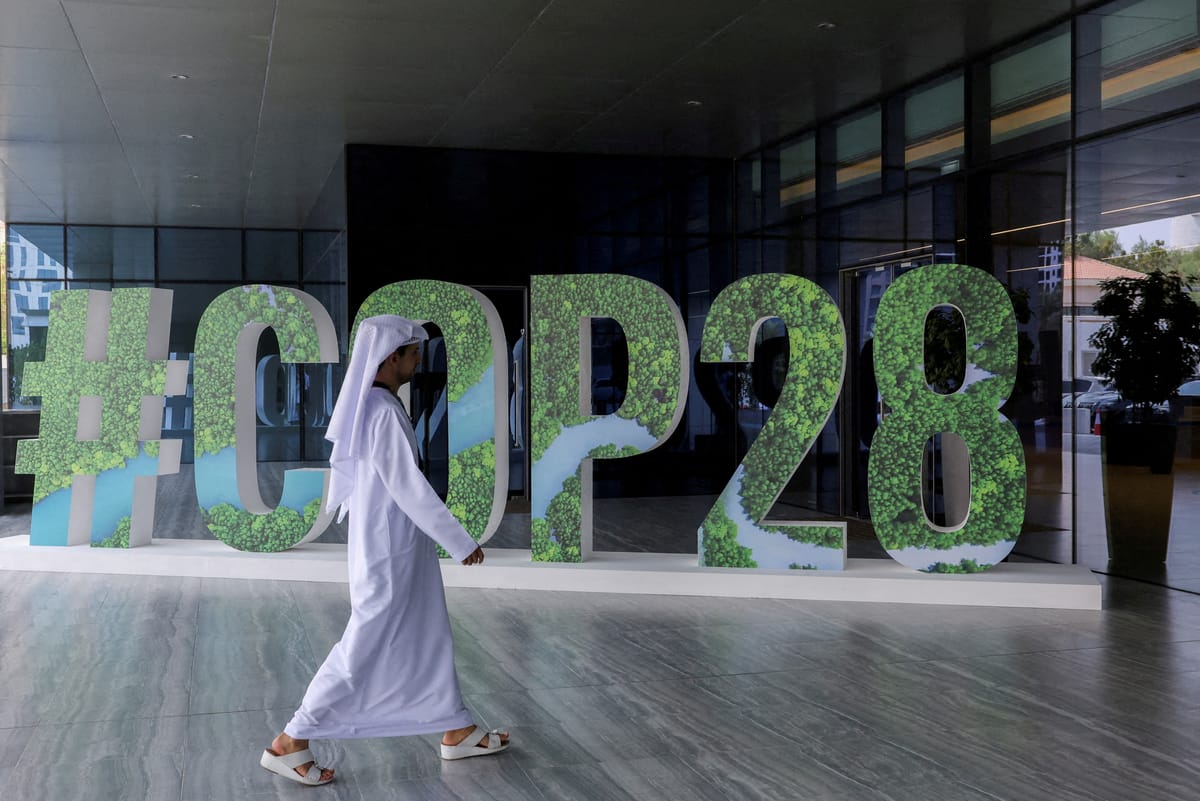The COP28 climate talks – what to expect
Every year, the UN organizes the “Conference of Parties” (COP) climate change discussions to make global progress toward slowing down and preventing climate change.

A few minutes every morning is all you need.
Stay up to date on the world's Headlines and Human Stories. It's fun, it's factual, it's fluff-free.
The backstory: Every year, the UN organizes the “Conference of Parties” (COP) climate change discussions to make global progress toward slowing down and preventing climate change – and to figure out how to deal with the effects of climate change that we’re already experiencing. At previous COP summits, there have been some breakthrough developments.
At the 2015 COP21 meeting in Paris, a legally binding climate treaty was created, which was signed by 195 countries/blocs. The Paris Accord is the most sweeping piece of climate legislation made to date. Countries that signed it agreed to reduce their greenhouse gas emissions, assess their progress toward meeting climate goals and help finance developing countries experiencing the impacts of climate change. At COP21, countries also agreed that the world needs to stay below a 1.5 C rise in global temperatures from pre-industrial times to limit the effects of climate change. But, even with this treaty in place, a lot of countries don’t seem to be meeting their climate goals.
More recently: This year, the world has already experienced record levels of heat and drought. 2023 is likely to be the hottest year on record. Massive wildfires and storms triggered or boosted by climate change are a regular occurrence now compared to previous years. Last month, a UN analysis found that global greenhouse gas emissions are still rising, and Earth will probably reach at least 2.5 C of warming by 2100.
Before the start of this year’s COP28 meeting, the head of the International Monetary Fund (IMF,) Kristalina Georgieva, has already said that it’s time to end "business as usual,” warning that the path we’re on is "not viable" if we want to end climate change. She told Reuters that worldwide carbon emissions need to be cut from 25% to 50% by 2030, while current pledges only cover an 11% cut.
The development: COP28 starts on Thursday in Dubai, which has been a bit controversial because the UAE has a lot of fossil fuel investments. COP28 president Sultan Al Jaber is also the CEO of Abu Dhabi National Oil Co., a major oil producer. A report was also just released showing that the UAE was planning to make fossil fuel-related deals during the summit.
Even so, over 70,000 people are expected to be there, including politicians, diplomats, campaigners, financiers and business leaders. It seems like the biggest issue on the table at this conference is assessing how much progress countries have made toward meeting the goal of a global temperature rise limit of 1.5 C. Another thing on the docket is to get energy industry players to sign a voluntary pledge to stop methane emissions by 2030. And, we’ll see more of the ongoing debate over how wealthier countries should be contributing to funding developing countries suffering from the effects of climate change. With the ongoing conflicts in the Middle East and In Ukraine, climate diplomacy is a little shakier this year, so everyone’s on their toes to see how things will turn out.
Key comments:
"The most important thing in COP28 is to be clear that the way we are going is not viable and define a level of ambition that is likely to keep a chance for the world to live with temperatures not exceeding 1.5 to 2 degrees Celsius," said Kristalina Georgieva. "So that is to my mind the number one priority for this COP, is to recognise that business as usual has to be dropped."
"This is a very sobering, even somber moment as world leaders gather," said Rachel Cleetus, policy director at the Union of Concerned Scientists in Massachusetts. "That said, there's a real opportunity in the climate space to secure some wins."
“These are very, very significant companies and countries and if we are able to really attack the methane issue here, that gives us substantial emission reductions of probably the most dangerous greenhouse gas,” said Adnan Amin, chief executive of COP28.




Comments ()